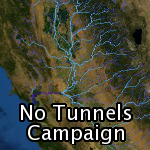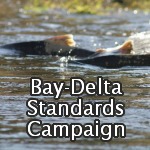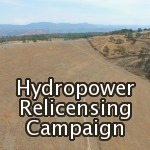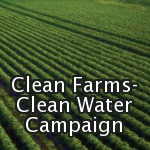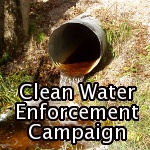The United States Supreme Court will not hear an appeal regarding California’s authority to add mandatory conditions in the new licenses for two hydroelectric projects on the Tuolumne River. The appeal was filed by Turlock Irrigation District and Modesto Irrigation District (Districts), owners of the Don Pedro and La Grange projects.
The Districts sought to overturn a June 2022 ruling by the D.C. Circuit of the U.S. Court of Appeals. That ruling found that the California State Water Resources Control Board had not “waived” its opportunity under Section 401 of the Clean Water Act to issue a “water quality certification” for the two projects. The Districts had alleged that the Board’s denials of certification were part of a “scheme” to delay action. A panel of D.C. Circuit judges found that the State Board had “acted” by denying the Districts certification.
The Supreme Court’s denial without comment ends the two-and-half-year federal battle in the Districts’ war on state regulation. As previously reported, the California Sportfishing Protection Alliance and allies Friends of the River, American Whitewater, Sierra Club, and Tuolumne River Trust opposed the Districts from the start. CSPA and allies, and their attorneys:
- Filed two set of comments in opposition to the Districts’ pleadings that sought a finding of waiver by the Federal Energy Regulatory Commission (FERC);
- Intervened in the Districts’ first legal appeal to the D.C. Circuit; and
- Filed briefs in opposition to the Districts before the D.C. Circuit.
On April 10, 2023, attorneys for CSPA and allies filed a brief in opposition to the Districts’ appeal to the Supreme Court.
Both FERC and the State Water Board also opposed the Districts’ positions throughout these regulatory and legal proceedings.
Water Power Law Group and the Western Environmental Law Center represented CSPA, Friends of the River, American Whitewater, and the Sierra Club in this matter. They worked with the Morrison Foerster law firm, which represented the Tuolumne River Trust.
CSPA’s 30-year advocacy on behalf of salmon and steelhead in the Tuolumne River now shifts to two other fronts. The first front is a series of challenges under state law to the water quality certification for the Don Pedro and La Grange hydroelectric projects. The second front is the proposed Tuolumne River “Voluntary Agreement,” which would drastically reduce flow requirements adopted by the State Water Board in 2018 amendments to the Bay-Delta Plan.



